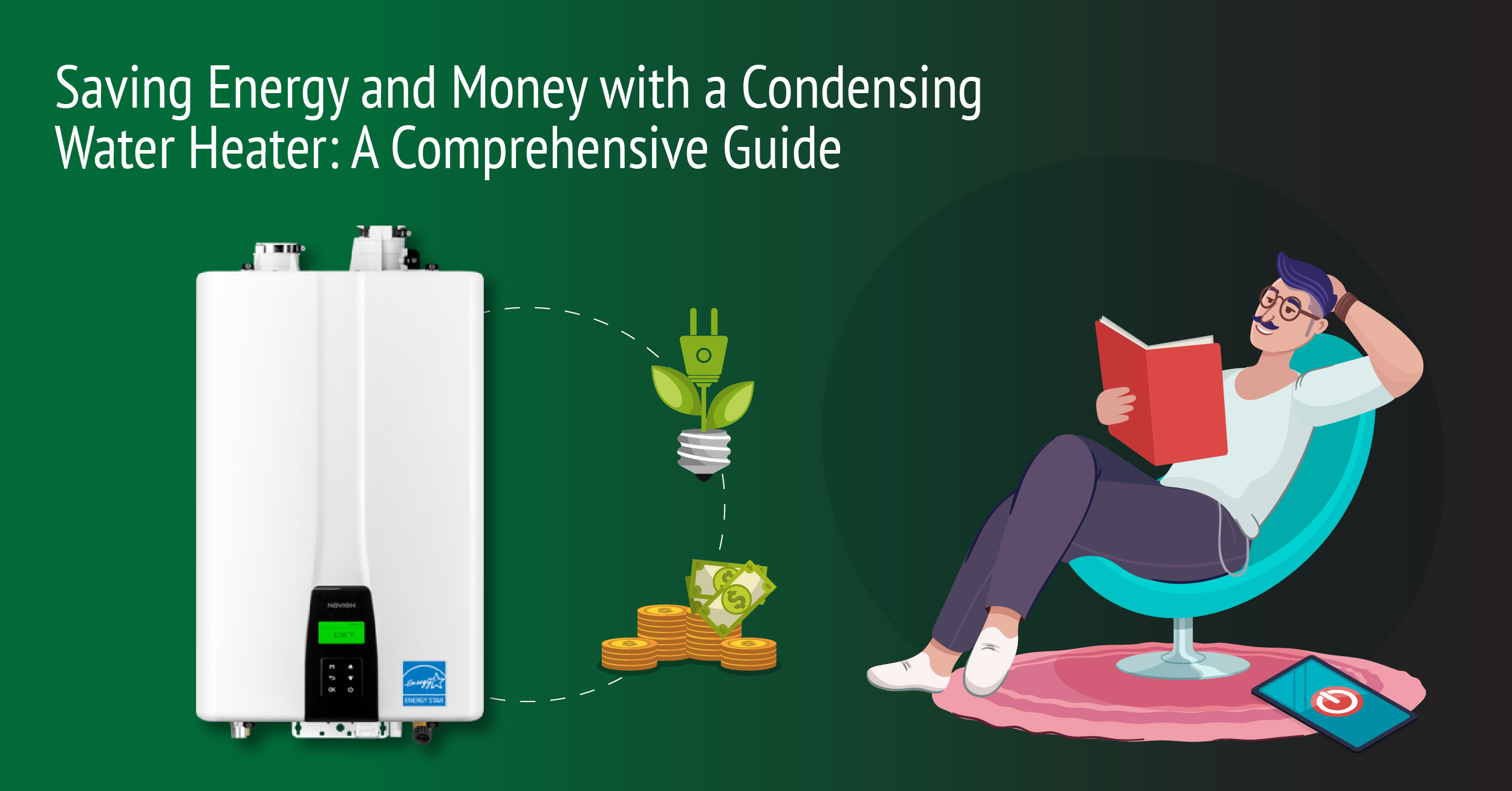Saving Energy and Money with a Condensing Water Heater: A Comprehensive Guide

Saving energy and money with a condensing water heater can be a smart investment for your home. These high-efficiency water heaters are designed to extract more heat from the combustion process, resulting in lower energy consumption and reduced utility bills. In this comprehensive guide, we will cover the key aspects of condensing water heaters, including how they work, their benefits, installation considerations, and maintenance tips.
Understanding Condensing Water Heaters:
Condensing water heaters are a type of tankless or on-demand water heater that is highly efficient. They operate by heating water only when you need it, as opposed to traditional tank water heaters that continuously heat and store a large amount of water.
How They Work:
Condensing water heaters work by capturing and utilizing heat from the exhaust gases produced during combustion.
Here's a basic overview of how they work:
1. Cold water enters the unit.
2. A heat exchanger heats the water using a gas burner or electric element.
3. Exhaust gases, which contain waste heat, are cooled down to a point where water vapor condenses into liquid.
4. This condensed water is drained away, and the remaining cooled exhaust gases are vented outside.
5. The condensing process allows these heaters to achieve high energy efficiency, typically over 90%.
Benefits of Condensing Water Heaters:
1. Higher Efficiency: They are significantly more efficient than traditional tank water heaters, which means lower energy bills.
2. On-Demand Hot Water: You get hot water whenever you need it, without worrying about running out.
3. Space-Saving: They are compact and don't require a large storage tank.
4. Reduced Environmental Impact: Lower energy consumption results in reduced greenhouse gas emissions.
Installation Considerations:
Before purchasing and installing a condensing water heater, consider the following factors:
1. Fuel Type: Condensing water heaters can be powered by natural gas, propane, or electricity. Choose the one that suits your home's energy source and local availability.
2. Location: These heaters should be installed close to the point of use to minimize heat loss through the plumbing.
3. Sizing: Properly size the unit to meet your hot water demands. An undersized unit won't provide enough hot water, while an oversized unit will waste energy.
4. Venting: Venting can be more complex, as condensing heaters use a different system than conventional units. Ensure proper venting to avoid carbon monoxide buildup.
Maintenance Tips:
To ensure your condensing water heater operates efficiently and lasts a long time, follow these maintenance guidelines:
1. Regular Flushing: Flushing the system annually removes sediment buildup, ensuring efficient heat transfer.
2. Check for Leaks: Inspect for any leaks or drips in the plumbing connections.
3. Inspect Venting: Ensure the venting system is free of obstructions and works correctly.
4. Clean the Heat Exchanger: Periodically clean the heat exchanger to prevent buildup and maintain efficiency
Cost Savings and Payback Period:
While condensing water heaters typically have a higher upfront cost than traditional tank water heaters, the energy savings can lead to a shorter payback period. Your actual savings will depend on factors like local utility rates, usage patterns, and the efficiency of your old water heater.
Conclusion:
Condensing water heaters are an excellent choice for homeowners looking to save energy and money. They are highly efficient, provide hot water on demand, and have a lower environmental impact. Before purchasing one, ensure that it's properly sized and installed, and perform regular maintenance to keep it running efficiently. The initial investment may be higher, but the long-term savings and benefits make it a worthwhile choice for many households.

